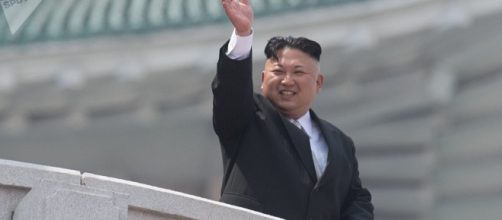North Korea's leader Kim Jong-Un has monitored testing of a new anti-aircraft system and ordered the mass production and deployment across the country. In recent months, the young leader attended a number of military-style tests and last Sunday, he supervised the testing of the mid-range ballistic missile. In a unanimous statement supported by China, the Council has asked Pyongyang not to "conduct new nuclear and ballistic testing".
On Sunday, the official North Korean agency KCNA announced that Kim was "supervising the testing of a new type of anti-aircraft gun system" designed to "detect and attack different targets flying in all directions." Pyongyang has already tested this new system in April 2016 but errors have been detected according to the KCNA.
Pentagon plans to conduct several missile defense tests
Pentagon is planning to conduct several missile defense tests to respond to the threats of North Korea. For the first time, missile defense tests will include defense against missiles with intercontinental ranges. As the AP writes, the first test is scheduled on Tuesday. US missile interception system has a relatively weak result with nine failed missiles in seventeen attempts since 1999.
The United States' main defense focus is currently North Korea. The Koreans are currently working on a missile testing that would be able to reach the US territory. The Pentagon owns several missile jams, and the system that is needed to break the missiles that North Korea is developing, is technologically the most demanding, AP writes.
Senator's warning
If not stopped, North Korea is on the road to developing nuclear missiles capable of reaching the United States, Director of US Defense Intelligence Agency General Colonel Vincent Stewart said. His statements are a sign of a growing concern with the progress of the North Korean missile and nuclear weapons development program.
US defense agencies persistently avoided giving an estimate of the North Korean military capabilities, but Senator Vincent Stewart warned that the risk would increase. "If left on the current path, they (North Korea) will eventually succeed in building a nuclear missile capable of threatening the United States," Stewart said. "Although it is almost impossible to predict when this weapon will become operational, the North Korean regime is committed to its realization," Stewart said.


